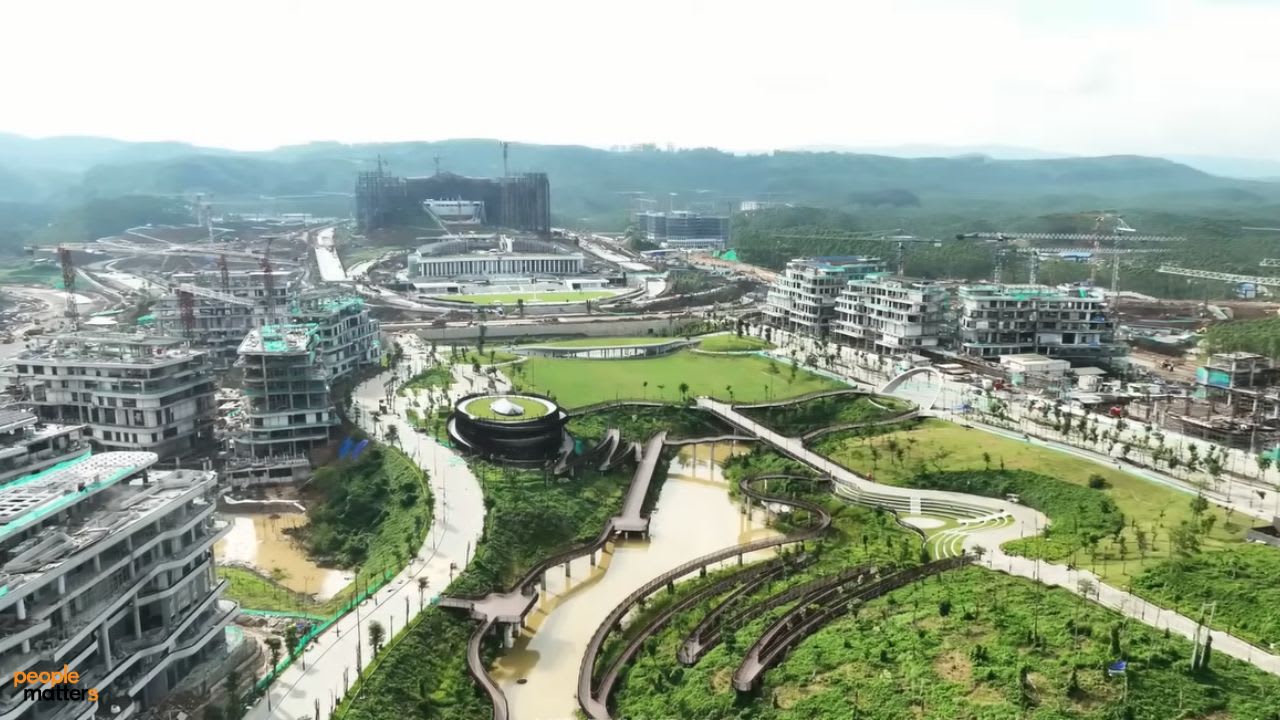Indonesia: Jokowi to spend final days of term in new capital Nusantara

JAKARTA – President Joko Widodo, or Jokowi, plans to spend the remainder of his final term in office in the new Indonesian capital of Nusantara. Other civil servants will be relocated “after everything is fully ready,” the chief executive told local media.
This week, a government representative confirmed the president’s plans to stay in Nusantara until his successor, President-elect Prabowo Subianto, is inaugurated on 20 October.
Despite construction delays and workers scrambling to arrange the presidential palace, Widodo said he began working from the new administrative centre in July. Back then, he assured reporters: “Everything is in good progress.”
Nusantara is Joko Widodo’s ‘legacy’
The decision to move to the new presidential palace is meant to demonstrate to the public the readiness of the massive US$32 billion construction. The feasibility of the project initially came into question because of issues in funding and land acquisition, which have purportedly taken years to resolve.
However, the president was determined to complete his flagship project and occupy it in his final weeks in office.
“The Garuda Palace, where the president will work as head of government, is prepared for occupancy,” spokesman Hasan Nasbi told BenarNews. “The president also wants to experience working in [Nusantara], as this represents his legacy.”
Widodo will continue to travel from Nusantara to other parts of Indonesia whenever necessary. However, cabinet meetings, security briefings and Indonesia’s Independence Day this year have already been held in the new capital, Hasan added.
Read More: How to grow leaders, not followers
Relocation ‘not as simple as we thought’
Nusantara is still under development on the island of Borneo. Once completed, the new capital will become home to 1.9 million residents.
While the presidential palace appears ready for use at this point, construction of the rest of Nusantara’s megastructures is set to finish only by 2045.
The administration has already assigned certain presidential staff to work on site to support Widodo’s daily functions, but it remains unclear which other government offices and ministries will be shifted to the new capital.
Last week, Widodo told the media: “I believe we, including myself, should relocate only after everything is fully ready. The relocation must be thoroughly prepared.”
The president said the government will need to adjust its targets and timelines in response to how the project is tracking. The influx of public sector workers, for one, will require an entire ecosystem of essentials such as housing, roads, commercial establishments, and utilities.
“[Relocation] is not as simple as we thought – just moving right away. We need to consider whether housing is ready, whether apartments are ready. And if apartments are ready, are water and electricity also ready? Everything needs to be in place.”
Read More: Inside Indonesia's push for greener jobs
For Widodo, a sign of Indonesia’s progress
In a special cabinet meeting held in Nusantara last month, Widodo stressed the value of moving out of Jakarta as a sign of Indonesia’s progress.
Yet, for some observers, expediting the megaproject has called into question the effectiveness of government planning and execution. On top of delays, the construction budget has reportedly run over, leaving the new capital struggling with a lack of basic infrastructure.
Sulfikar Amir, an associate professor from Singapore’s Nanyang Technological University who spoke to The Guardian raised concerns: “Who wants to work in the middle of the forest with [a] lack of infrastructure?”


